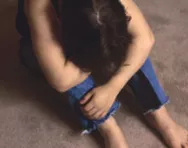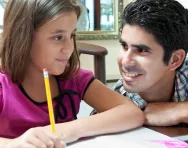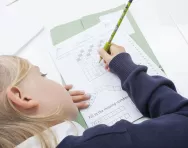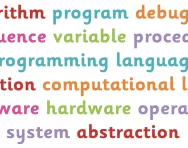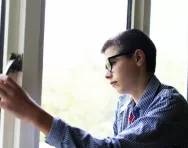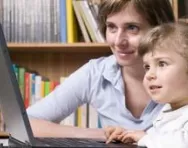Important update from TheSchoolRun
For the past 13 years, TheSchoolRun has been run by a small team of mums working from home, dedicated to providing quality educational resources to primary school parents. Unfortunately, rising supplier costs and falling revenue have made it impossible for us to continue operating, and we’ve had to make the difficult decision to close. The good news: We’ve arranged for another educational provider to take over many of our resources. These will be hosted on a new portal, where the content will be updated and expanded to support your child’s learning.
What this means for subscribers:
- Your subscription is still active, and for now, you can keep using the website as normal — just log in with your usual details to access all our articles and resources*.
- In a few months, all resources will move to the new portal. You’ll continue to have access there until your subscription ends. We’ll send you full details nearer the time.
- As a thank you for your support, we’ll also be sending you 16 primary school eBooks (worth £108.84) to download and keep.
A few changes to be aware of:
- The Learning Journey weekly email has ended, but your child’s plan will still be updated on your dashboard each Monday. Just log in to see the recommended worksheets.
- The 11+ weekly emails have now ended. We sent you all the remaining emails in the series at the end of March — please check your inbox (and spam folder) if you haven’t seen them. You can also follow the full programme here: 11+ Learning Journey.
If you have any questions, please contact us at [email protected]. Thank you for being part of our journey it’s been a privilege to support your family’s learning.
*If you need to reset your password, it will still work as usual. Please check your spam folder if the reset email doesn’t appear in your inbox.
'We chose home education because the kids were unhappy at school'
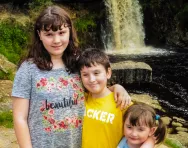
All children go through the occasional rough patch at school, but what happens when their primary-school experience is making them miserable? Janice Broomfield, mum to Bethany, 11, Christian, nine, and Carla, five, explains why she decided to home educate her children when they ran into problems at school.
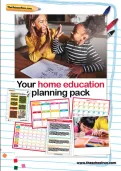
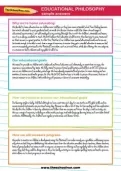
Free home education planning pack & resources
- Guidance, templates & advice
- Practical tips from experts and parents
- How to establish a routine and set goals
'They were having panic attacks about school'
'I started home educating Bethany, Christian and Carla two terms ago after the school system failed them. All three have sensory processing disorders and Asperger syndrome. None of them understood their schoolwork, so they fell behind and then became frustrated. They had no friends and spent their time at school alone, which caused lots of tears and nightmares, with worries about what each next day would bring.
'When it got to the point where our children were having panic attacks and feeling severely anxious about school, my husband Chris and I asked them whether they would like to learn at home. They were keen to try, so we started to home educate.
'Lots of teaching can be done as a family'
'We've discovered our children learn best with visual cues, especially if I'm teaching them something new. I print and laminate visual aids such as fraction pieces to put together. We use story cubes to help their imagination, and I print worksheets the night before, which are stored in a tray ready for the next day. Each child has their own folder for their completed work and they each have a clipboard to take on our days out.
'We have a system where, for example, I will teach Bethany something new in maths whilst Christian and Carla continue doing work they are comfortable with whilst being supported by Chris, who gives them any little reminders they might need. Once Bethany is able to continue independently, I move on to Christian and start him with something new, then I move to Carla, then back to Bethany and so on.
'However, lots of teaching can be done as a family. When we visited the ruins of Beeston Castle in Cheshire as part of our history project, Bethany researched on her computer and then wrote about it. Christian did something similar but not as in-depth, and had quiz sheets about castles. Carla used worksheets where she would match up parts of the castle with their correct names and drew her own castle and designed a flag to go on top of it. Then all three children got together with a massive pile of Lego and built their own castle together, which encouraged teamwork and communication.
'We do most of our science projects this way, too. Together, we've made an erupting lemon volcano, non-Newtonian fluid and puffy 3D paint. We’ve hatched our own live tadpole shrimps, and watched our caterpillars turn into butterflies. We’re currently successfully growing a variety of fruit and veg.
'Our goal is to help them excel in what they love'
'One of the great things about home education is that nothing can hold our children back. Even though she's only 11, Bethany is completing GSCE-level English reading and writing at home and has an amazing talent for the piano, which is excellent therapy for her. Christian is computer coding and Carla recently put a circuit together without instructions. When we first started home educating, Carla couldn’t recite the alphabet, and now she can write and read. She has progressed a lot quicker than at school – we started from scratch with phonics, taking things slowly at her pace.
'Although both my husband and I home educate, it doesn’t have to be expensive once you get into the habit of asking for discounts. We love being able to visit places during school hours when hardly anybody is about. We’ve never socialised so much, and our children are slowly beginning to feel comfortable amongst others in a more natural way.
'Bethany, Christian and Carla are different children now. They’ve responded to learning at home in a very positive way, smiling, laughing and playing with each other. It allows Chris and I to give them personal support in a way we know they will understand. For the first time, they're asking me to give them more work.
'Our goal is to help our children excel in the things they love, support them in the areas they struggle with, encourage them to believe in themselves, to never give up on their dreams and to teach them the skills they need to prepare them for the world.'
Bethany says: 'I love home education. It’s shown me that learning can be really fun and different. I attend Aintree School Of Music once a week where I’m learning to play piano, and I want to be a famous musician when I’m older.'
Christian says: 'I love computer coding. I can do lots of coding at home now, and when I grow up, I’m going to code for the Government.'
Carla says: 'I love learning at home. I want to work really hard so when I grow up I can buy my own house and be an inventor.'
